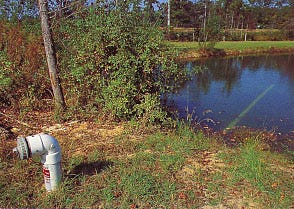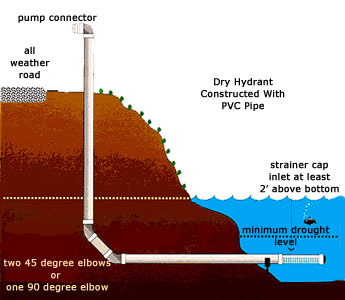Is Maine up to regulating the aquaculture industry, and protecting the state's coastline?
Emails show confusion, reluctance by Maine's chief aquaculture overseer after die-off
SOMESVILLE, Nov. 27, 2021 - The only salmon aquafarm with an operating permit in Maine was ranked the worst seafood sustainability performer of all aquaculture companies in the world as measured by an organization which monitors such matters.
Canada-base Cooke Seafood, which had a massive die-off of fish at its farm just south of MDI in August and is seeking a renewal of its Maine permit, “is the worst performing aquaculture company, scoring an abysmal 0.7 out of 100,” according to industry observer the fishsite.com.
“Cooke ranks 28th in the Seafood Stewardship Index, sitting at the bottom of the list due to lack of disclosure on most key topics across all measurement areas,” stated the summary by the World Benchmarking Alliance.
“Cooke does not explain how it traces the origins of its products and how it assesses illegal, unreported and unregulated risks … the company could organise and strengthen its efforts in all areas by disclosing a sustainability strategy with time-bound targets.”
Cooke’s Canadian spokesman Joel Richardson, said, “We have never participated in this so-called ‘ranking’ which is funded by foreign overseas governments and organizations.
“In Maine, like other local food producers, we are inspected, audited and certified regularly by multiple American government departments including the US Food and Drug Administration.”
“In October, we were named to the SeafoodSource.com Top 25 Seafood Product Innovators – 2021 Edition.”
When QSJ pointed out that Cooke, with $2.3 billion in sales, is a paid advertiser and sponsor of SeafoodSource.com, a trade organization, Richardson got testy with QSJ:
“Sadly. it seems you are always looking to find a negative angle.”
QSJ is not familiar with all the players in the global seafood hierarchy, but citations of bad behavior by industry characters keep crossing my screen, along with questions of how rigorous the state of Maine is monitoring the aquaculture industry as it grows.
QSJ obtained emails by Marcy Nelson, Maine’s acting aquaculture director, showing her reluctance last August to investigate Cooke too aggressively lest DMR would be forced to “potentially having to then take action.”
The email chain started after Nelson asked a staffer at the Maine environmental protection department whether DEP was planning a dive to visually inspect the sea bottom after the die-off of 116,000 salmon in pens operated by Cooke at Black Island, next to the Gott islands just south of Bass Harbor.
The DEP staffer, Clarissa Trasko of the Eastern Maine compliance office, responded:
“No.
“What are you concerned about that would require a dive? Is Cooke video taping the bottom under that pen sites for DMR? Do you have the authority to ask them for that, if it is not being done?”
Nelson wrote back, “Just to take a look and confirm that there is not any organic build-up from this event. There are claims of a ‘dead bottom’ circulating. Cooke is not collecting videos for us at this time. Although we have the authority to ask for videos, there was concern in the past about it being contrary to the MEPDES permit should we start collecting that information and potentially having to then take action.”
Trasko replied,
“Hi Marcy, If you are willing to exercise DMR authority, I am thinking this would be a good time to ask for videos, given the situation.”
MEPDES is Maine’s statute for regulating waste water and other water pollutants. The email conversation occurred Aug. 30, two weeks after Cooke discovered the die-off.
QSJ asked Nelson in an email, and copied the deputy attorney general overseeing Maine’s Freedom of Access Act, “I would like a more detailed explanation of this email thread so I understand terms like ‘dead bottom’ circulating and the concern in the past about what is contrary to MEPDES permit …”
QSJ did not get a reply.
“Cooke Aquaculture has been fined millions of dollars across the country.” said Protect Maine’s Fishing Heritage Foundation Executive Director Crystal Canney.
“The commissioner of DMR continues to turn a blind eye to the violations and may in all likelihood renew this lease. Despite efforts to have an open and collaborative statewide conversation about this, the administration resists at every turn. The Department of Environmental Protection did not even visit the site until more than two weeks after the event, long after the pens were cleaned.
On Aug. 13, according to Freedom of Access records, employees at Cooke found dead fish at the site which totaled more than 116,000 fully grown salmon. The company blamed low oxygen in the pens and hired a clean-up crew out of Portland. The carcasses were dumped in a compost site in Tremont.
Richardson said Cooke was not obligated to report the incident to the state because low-oxygen in the pens did not trigger a “threshold” reporting requirement and that Cooke did so only as a courtesy. That begs the question of how a massive die-off would not trigger a required alert to the state.
The handling of the die-off by the state and previous violations by Cooke have been of great concern to citizens who oppose another aquafarm application for Frenchman Bay, a much more closed-in body of water than Cooke’s farm at the edge of the Gulf of Maine.
In some ways, Cooke is the collateral target of this much bigger concern, the construction of two larger salmon farms in one of the world’s most pristine bodies of water, enjoyed by local fishermen, recreational yachtsmen and visitors to Acadia National Park.
The process for that application has exposed the conflicted interest of the state with one authority charged with enforcing environmental issues (DEP) and another seeking to enable and grow sea-born businesses (DMR).
The one time the state appeared to sanction Cooke for violations was also a mirage.
In 2019, the DEP received copious publicity when it “fined” Cooke $156,213 as part of a consent agreement for multiple violations at fish farming sites Cooke operates in Hancock and Washington counties, including having too many fish in pens, failing to conduct environmental sampling, and failing to follow a number of procedural measures laid out in the company’s operating permit, including on-time filing of pollution sampling reports and fish spill prevention plans.
But instead of an actual fine, the state decided to go into business with Cooke, leasing water rights to enable the restoration of Atlantic Salmon to the Machias River with Cooke managing the project which still hasn’t started. The state considered that project to be a satisfactory punitive measure for the violations.
The “partnership” with the state gave Cooke a huge deniability.
“The administrative consent agreement was created to determine a path forward and to start anew - wipe the slate clean,” Cooke spokesman Richardson said.
"These infractions are administrative/procedural in nature and companies across various types of industries go through [administrative consent agreements] to improve administrative procedures by working with the state in this manner," he wrote. "These violations of the permit are mainly timing and clerical issues and are resolved as part of our continuous improvement program. This agreement was written with much communication between our operations in Maine and the Maine DEP and has just recently been finalized. Cooke Aquaculture USA Inc. remains in compliance with our MEPDES permit."
The recent focus on Cooke sends a clear message to the state: “If you can’t manage the only permitted salmon farm, why would you allow others?”
“It is difficult to make sense of DMR granting a renewal to a foreign company that continues to demonstrate that they have no respect for our waters,” said Canney.
All that said, QSJ has his own questions.
Why does Maine still not have a permanent director of its aquaculture program, while the department cannot keep up with the surge of applications?
Why was Cooke allowed to operate for more than two years after its permit expired?
Why was the DMR staff in a state of confusion about its own enforcement authority?
What did the acting director mean when she wrote, “there was concern in the past about it being contrary to the MEPDES permit should we start collecting that information and potentially having to then take action.”
Is the reluctance to pursue aggressive regulatory action coming from the commissioner? The governor?
And will this lackadaisical enforcement effort carry over to future aquafarms?
FOOTNOTE: A reader asked about the status of a QSJ partnership with the Maine Monitor announced last spring to collaborate on a series of articles focusing on the aquaculture industry. Unfortunately, the editor of the Maine Monitor and the reporter left to take jobs with Spectrum Cable halfway through the project. QSJ will continue the effort on his own.
Failed Hampden plant critic from Southwest Harbor seeks board seat to effect change
SOUTHWEST HARBOR - MDI could have two board members on the same agency which manages the disposal of all its municipal waste with very different views on how to do that.
Jim Vallette, vice chair of the warrant committee here who said previously that the agency, Municipal Review Committee, is no longer useful and should be disbanded, is seeking a seat on the MRC board.
“If elected to the board of the MRC, I will advance the common interest of member towns in recycling waste and saving money. Rather than paying MRC to mismanage our wastes, we can save money by separating our recyclables, keeping them uncontaminated, and working together to minimize collection costs and maximize revenue,” Vallette wrote to the 115 towns which are members of the consortium.
His letter was an indictment of current management and board.
The MRC’s chosen vendor, Fiberight Corp., shut down the recycling plant in Hampden in May 2020 when it could not pay its bills. Most of the trash since then have been either incinerated or taken to landfill.
Vallette is more knowledgeable about waste management than any of the members of the current board, including Tony Smith, public works director of Mount Desert and chair of the Acadia Disposal District which includes Tremont and the outer islands.
“I run a small business called Material Research and have some relevant expertise. I have been tracking waste literally around the world since the 1980s. In the 1990s, I helped organize a global ban on the export of toxic waste to developing countries. In the past decade, I produced a series of reports on ways to optimize the recycling of materials for use in building and construction. Last month, I authored a widely-publicized study, The New Coal: Plastics & Climate, for Beyond Plastics, which is a project of Bennington College.
“MRC’s biggest asset is the waste of its members, which are 115 towns, cities and waste disposal districts, from Boothbay Harbor to Aroostook County. Contracts, called Joinders, require members to pay MRC for more than 150,000 tons per year, combined, whether or not the waste is recycled. The MRC holds all the cards through a Master Waste Supply Agreement, under which only it can terminate these contracts.
“Throughout this year, I have been raising concerns about MRC’s due diligence. In January, the MRC announced that an obscure company called Delta Thermo Energy (DTE) was chosen to take over the closed Coastal Resources (Fiberight) waste processing center in Hampden. I looked around at the company’s history, and quickly found some serious warning signs. During a virtual board meeting in January I asked MRC’s board and executive director whether they knew that DTE was unable to obtain financing for a similar project in Allentown, Pennsylvania, that it had a thin track record, that towns up and down the East Coast had rejected its proposals. The executive director replied that he and the MRC’s attorney and consultant had completed their due diligence and found nothing of concern. Later, David Marino of the Bangor Daily News reported that DTE was grossly inflating its resume, listing advisors and projects with no connection to the company. The MRC consistently denied any knowledge of these issues and expressed confidence in DTE’s expertise and financial strength.
“MRC’s leadership doubled-down in May. Its executive director, consultant and board members met with councils and boards like yours, and asked them to extend the waste agreement from 2033 to 2038. That secured five more years of our towns’ waste as potential collateral for prospective financiers. Infants today will be graduating from high school before our agreements with MRC expire. Even after MRC officials convinced members to go along with this, DTE could not obtain financing. In August, the MRC announced that it was reopening bidding. It has not identified any new prospective owners. In October, the selectmen of Southwest Harbor, knowing of my ongoing concerns, asked me to run for the board.
“The MRC’s magical thinking, that the plant in Hampden will spring back to life someday soon, is keeping us in kind of a waste management purgatory, a time in which where we are prohibited by the MRC from pursuing recycling on our own, and no recycling is occurring.
“As a member of the MRC board, I will work to free our towns from these Joinders and the Master Waste Supply Agreement. Thank you for your consideration.”
It will be interesting to see how the select board in Mount Desert handles Vallette’s request or whether it will even schedule it for consideration, in light of Tony Smith’s past, unvarnished support of the MRC, Fiberight and DTE.
BH asks taxpayers to support climate plan while park, cruise ships’ carbon footprint go unchecked
BAR HARBOR - How can this or any town on MDI effect a climate action plan without accounting for the carbon emissions from cruise ships, land-based tourism at Acadia National Park and incineration of trash from all four towns?
Ruth Poland, chair of the climate task force, acknowledged the challenge in a call with QSJ but said her committee does not have oversight authority across those sectors. “We’re all just volunteers.”
The City of Ithaca, N.Y., recently became the first municipality in the country to vote to electrify and decarbonize all its buildings.
In the Bahamas, environmental groups are battling Walt Disney Co.’s plans to build a port for $1 million visitors to Lighthouse Point on the island of Eleuthera, to protect its magical coral reefs and vulnerable sea beds.
Ten communities on Casco Bay are banding together to develop defenses against coastal flooding caused by climate change. Over the next two years, the towns of Freeport, Falmouth, Cumberland, Yarmouth, Cape Elizabeth, Scarborough, Portland, South Portland, Chebeague Island and Long Island will invest a half million dollars on projects that harness the power of nature to defend against flooding.
Yet on MDI, the “sustainability” committees are staying in their narrow lanes - managing oversight only for their own local governmental concerns.
Ruth Poland marveled at Ithaca’s bold approach and said she is eager to learn more. Perhaps incoming town manager Kevin Sutherland can help. He worked as Ithaca’s chief of staff six years ago before becoming the town administrator at Saco, Maine.
“We are being very aggressive,” Luis Aguirre-Torres, Ithaca’s director of sustainability told the Washington Post. “I’m very excited but, at the same time, it’s a lot of work ahead.”
The city of about 30,000 people consists of some 6,000 homes and buildings. Decarbonization would involve looking at everything from how a building is heated to what appliances it uses, with the aim of moving away from the consumption of fossil fuels such as oil and natural gas.
Buildings account for nearly 40 percent of greenhouse gas emissions in the United States. Ithaca’s initiative is projected to cut about that much from the city’s overall carbon footprint — saving approximately 160,000 tons of carbon dioxide. That’s the equivalent of the emissions from about 35,000 cars driven for a year.
“It’s a project for the whole city, not just municipal buildings,” said Aguirre-Torres.
The “climate emergency” efforts on MDI are focused only on municipal and school buildings, with some collateral public education campaigns added.
Even though the Town Council here has been considering a cap on cruise ship visits, the focus has been on the crowds in town and not on pollution. Cruise ships are among foulest polluters on the planet. The cruise ship industry has threatened to sue Bar Harbor if the town council cuts back the schedule for 2022, which calls for a record number of passengers.
Poland’s vice chair is Tobin Peacock, husband of council member Val Peacock, who held significant air time at the council meeting Nov. 16 promoting her husband’s recommendation for taxpayer-supported “sustainability coordinator.”
Two hours later, she refused to support the proposed cruise ship cap for the summer of 2022, opening the possibility for 180 ships to visit next summer.
No one knows the carbon emissions of 180 cruise ships in Bar Harbor, compared with the net zero emissions goals of the municipal buildings. Similarly, no one knows the carbon emissions of 4 million visits to Acadia National Park. It’s never been measured to the best knowledge of QSJ.
But it wouldn’t be that difficult to figure out.
The park is capable of extrapolating the number of autos associated with 4 million visits and what the carbon effect is, within plus or minus 2 percent of the actual number. Similarly, the carbon output of each cruise ship visiting Bar Harbor is a matter of record and can be quantified. Lastly, Bar Harbor knows exactly how much tonnage of trash it sends to incineration and landfill.
Ithaca does not have a national park nor 180 visiting cruise ships so it’s a fairly safe bet that its zero emissions goal is a reasonably accurate account of the city’s actual carbon output.
Timur Dogan, a professor at Cornell University, which is located in Ithaca and is consulting with the city on the project, said researchers are working on modeling to help inform what buildings to tackle first. But the program is broadly slated to unfold in two phases — the first covering 1,600 buildings and then another 4,400.
The goal, Aguirre-Torres said, is to reach full building decarbonization by 2030 and have the first phase done in the next three years.
Poland agreed that it made sense for MDI to have a holistic strategy but that may be too tall an order for her volunteer committee. After all, it wasn’t long ago that former Town Council Chair Paul Paradis and Town Manager Cornell Knight were men in full recruiting for more cruise ship business.
But does it make sense for Bar Harbor taxpayers to foot the bill for gas emissions audits of only its municipal buildings and hiring a sustainability coordinator to manage only to that? Can the town effect a material impact on MDI carbon emissions by itself?
AS QSJ wrote in a previous post, town-by-town efforts on MDI are like bailing water with a spoon on the Titanic.
FOOTNOTE: One way to pay for sustainability cost is to sue the fossil fuel industry for damages. On Nov. 18, A Climate to Thrive hosted the Center for Climate Integrity, which is spearheading efforts for communities to sue corporate polluters. Since 2017, 27 communities have turned to the courts to hold ExxonMobil, BP, Chevron, Shell and other major fossil fuel companies accountable, making those companies pay for local climate damages. You may watch the CCI presentation by clicking here.
Dry hydrant proposed for Long Pond
SOMESVILLE - Long Pond is the largest lake on MDI and an obvious water source for nearby neighborhoods to fight fires.
But not during winter when the ice cap could be 15 inches thick.
A “dry hydrant” could be the solution, and the Woods Road subdivision off Pond’s End is seeking town assistance to locate one nearby. The select board earlier this month assigned Fire Chief Mike Bender and Public Works Director to come up with some cost estimates for engineering such a hydrant.
The device is simple. Run a pipe under the ice cap and shorefront to a standing hydrant.
The town’s only tanker truck is housed at the Somesville fire station, about five minutes from Pond’s End, Chief Bender said. Once the pump truck is connected to the hydrant, a 2,500-foot hose can reach Northern Neck Road, parts of Woods Road, Ripples Road, Whitney Farm Road and Kimball Camp Road.
Or the tanker can ferry water beyond that.
The request prompted a bigger discussion of how many hydrants the town has, how the water sources have been affected by climate change and what changes were needed to update the fire fighting infrastructure.
Public Works director Tony Smith was the only naysayer at the meeting. He worried that if the town built a dry hydrant for Woods Road, then it would have to build them for every developer and every subdivision.
Select board members were mostly of the opinion that fire fighting is a basic town service and Mount Desert should protect its citizens to the fullest.
Project sampling local well water for arsenic expanded to all of Mount Desert Island
BAR HARBOR – College of the Atlantic (COA), in partnership with MDI Biological Laboratory and Dartmouth College, will be conducting free private well water sampling for MDI residents from Nov. 29 to Dec.18, 2021.
The project is focused on investigating the spatial and temporal patterns of groundwater chemistry. This phase of the study aims to raise awareness of the need for regular well water testing and build upon COA’s spatial groundwater quality dataset, a study that was begun in 2016. The project is funded by a National Institute of Health (NIH) Science Education Partnership Award (SEPA) supplement grant.
Test results will yield concentration information for 13 different elements including arsenic and uranium, two toxins frequently found in local groundwater. Even with low, chronic exposure, arsenic is known to cause negative health outcomes such as developmental issues in children and cancer. Based on prior sampling and testing results, at least 10 percent of wells on MDI have arsenic or uranium values above the federal and state recommended limit of 10 parts per billion (ppb).
This sampling round had been expanded to include the southern half of Mount Desert Island; previous testing over the last few years has focused on the northern portion of the island. Residents who abide on the southern half of MDI who have a private well and are interested in having their well tested, can contact Sarah Hall, Professor of Earth Science, College of the Atlantic, by email (shall@coa.edu) to set up an appointment.
Residents will collect their own sample, which takes about 10 minutes; drop off and collection is contact-free.
Residents in the northern part of the island who have not yet had their well tested, are invited to contact Hall to be put on an interest list for future sampling events. A similar project, started in October 2021, in conjunction with the Town of Bar Harbor aims to test 100 wells within the town limits.
You may find out more by clicking on https://www.coa.edu/shall/geoscience/groundwater-quality-project.html.








